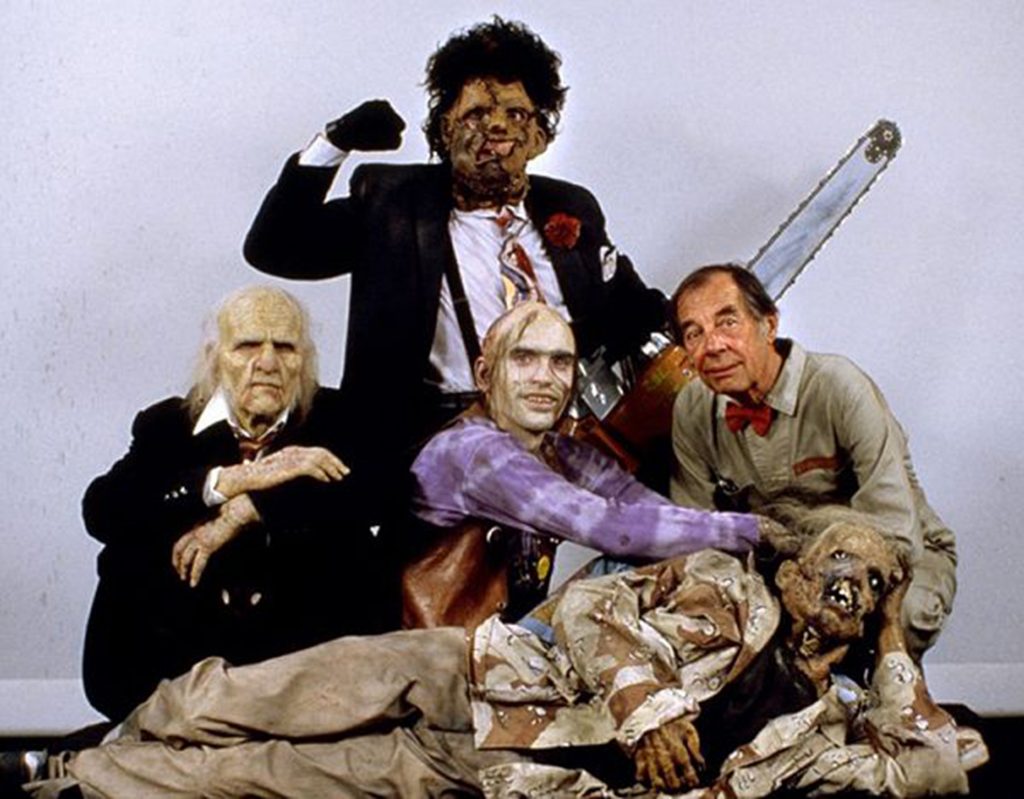The year 2017 set a record for being the biggest box office year of all time for horror films. With blockbusters like the adaptation of Stephen King’s It and Jordan Peele’s Get Out bringing in hundreds of millions, it signals a possible change from the current template of horror films being associated with slow months and poor reviews.
In 2019, Jordan Peele continues to dominate box offices with his hit film Us, and Ari Aster has released another well-received horror piece in Midsommar coming off the success of his first feature-length film, Hereditary. These pieces mark a distinctive shift in the tone and style of popular horror. In stark contrast to the over the top gore and ridiculous practical effects of the 80s and 90s, horror now is more psychologically driven, and less reliant on gouts of fake blood. Films now aren’t necessarily better, but they are predominantly more serious in tone and story.
Harken back to the early 90s, and the release of the horror/dark comedy of The Texas Chainsaw Massacre 2. This film is perfectly indicative of the ridiculous mindset of the era. The gore was obvious and often, the tension built entirely off of trying not to vomit, and the story as barebones as possible. Set in a whacky amusement park, beautiful young people are sliced up to the point where it all just becomes rather silly. This is coming off of successful cult films released within a few years, like eventual Lord of the Rings director Peter Jackson’s Dead Alive, and future Spiderman director Sam Raimi’s The Evil Dead and Evil Dead 2. These films relished in making films during the golden age of practical effects, and seemed to perfectly balance comedic and horrific tones. While critically lauded, they failed to earn box offices as large as less impressive, but bloodier flicks like TTCM2. While the former was perfectly balanced, the latter is sloppy at best, with haphazard comedy thrown together so much that you wouldn’t be surprised to see Leatherface wink at the camera while leafing through an electric chainsaws guide.
As horror has changed, so too has its reputation. Films like The Exorcist and Rosemary’s Baby were critically acclaimed and received rave audience reviews. However, The Oscars always tended to shy away from awarding such a genre with any awards. Get Out received over four nominations from The Academy, including best picture, best actor, and best original screenplay, which it won. Classified as a comedy at the Golden Globes, it harkens back perfectly to the balanced tones of 80s cult classics, while still feeling like an incredibly fresh and modern story.
Directors like Jordan Peele are being lauded with praise for not only changing the genre, but also telling relevant, poetic stories that resonate both with universal themes and contemporary politics. As box office records continue to be broken, and audiences continue to go home talking, it seems that horror in cinema has a bright future ahead. Not only are there many independent, original works being produced, but people are actually enjoying them.

